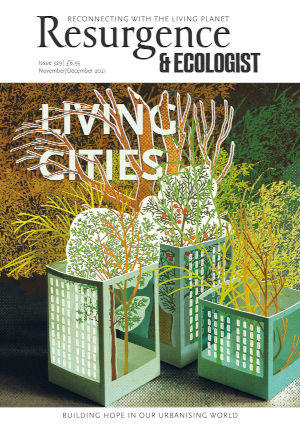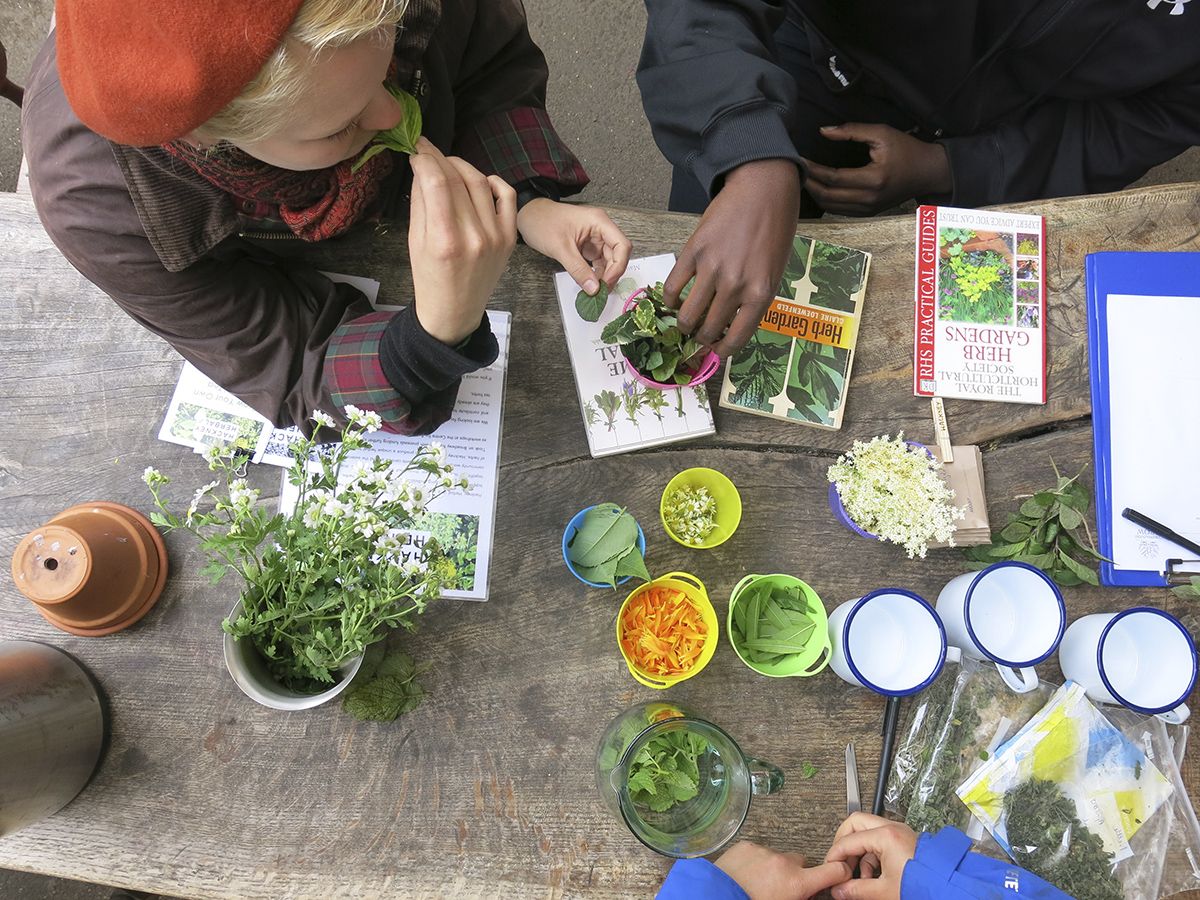If you ask anyone who grows their own food why they do it, you’re unlikely to get a simple answer. For me, the community garden did so much more than provide me with a space to grow plants. As well as helping me to meet my neighbours and people I wouldn’t have normally have crossed paths with, it also rehabilitated me after a nasty bicycle accident and provided the fertile ground on which I changed my entire career path.
I set up Hackney Herbal in 2015 as a way to connect people and herbs in my local area. I began to realise that there was a wealth of plant-related knowledge across Hackney and that people were keen to talk about the plants of their homelands. This gave me the idea to create a project that celebrated the diversity of the area through the plants that people used culturally. We are now based at Trowbridge Gardens in Hackney Wick and are creating a space where people can come and learn and share knowledge about growing, herbs and permaculture. While many people face multiple barriers to accessing land to grow their own food, we also encourage people to seek out edible and medicinal wild plants in their locality. Seeing how these plants come and go throughout the year helps us tune in to the seasons. In doing so we become more aware of the weather and climate and live more in line with Nature’s yearly cycle. Taking a walk in a local green space or visiting the same spot regularly and seeing how it changes is a great way to connect with Nature. It can provide us with a much-needed window of respite or moment of escape in our busy city lives.
Growing food and foraging in the city invites us to be part of a wider ecology of life beyond our human connections and reminds us of the importance of exchange and mutual aid between people and planet. Being able to nurture something, even if it’s only one small pot plant on a windowsill, gives us hope and a connection that will nurture us in return. Trying to grow things in an ever-changing and unpredictable climate also teaches us many lessons, about the cycle of life and death, and about how much lies outside our immediate control.
Growing and gardening also helps us to close some of the loops on the tremendous amount of waste that we create in urban areas. So much of what would otherwise be sent to landfill or incinerators can be assimilated into a gardening project. It might be building raised beds from old scaffolding boards, composting food scraps, or using spent coffee grounds to grow mushrooms. Small pockets of unused land can be transformed into productive spaces providing food and medicine for people as well as sustenance and shelter for wildlife. The increased temperatures in urban areas provide an advantage for growing crops that are more tender and give us a longer growing season.
I have found that the best way to learn is to get stuck in, remembering that plants – much like people – are unpredictable and that this is all part of the fun.
SPICY ROSEHIP TEA
Rosehips – the fruits of the rose plant – are a wonderful source of vitamin C and are a brilliant fruit to help the body’s immune system. You will find them growing wild in hedgerows and often along urban waterways. Rosehips can be harvested when the fruits are soft in late autumn and throughout winter.
If you are foraging, be mindful, only take a few hips from each plant you visit, and leave plenty for others and wildlife.
Ingredients (2 servings)
½ mug of rosehips
a small chunk of ginger root, grated or sliced
½ tsp cinnamon
3 cardamom pods
3 cloves
a slice of lemon
1–2 tsp honey (optional)
Directions
1. Place the ginger, rosehips and spices in a saucepan and cover with 4 mugs of water, bring to the boil and simmer for 15 minutes.
2. Strain through a sieve or tea strainer.
3. Add a slice of lemon and, if you wish, honey to taste.







